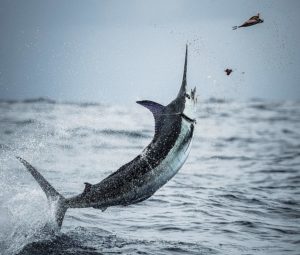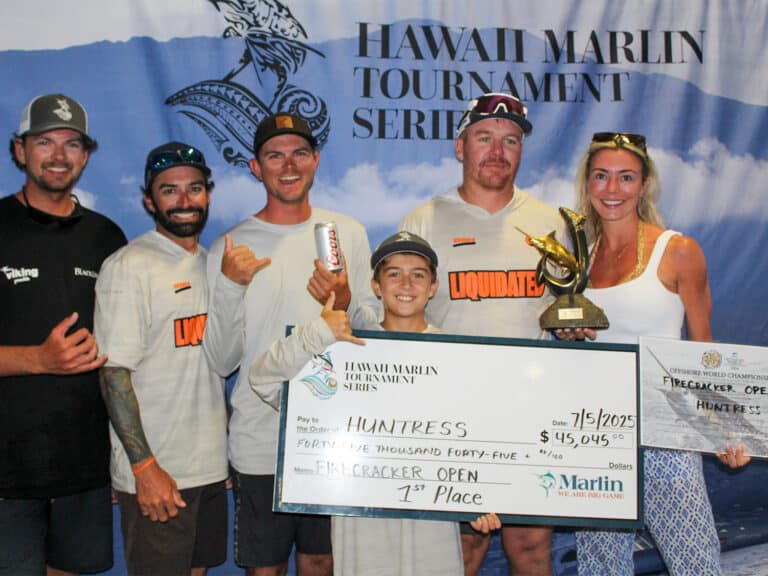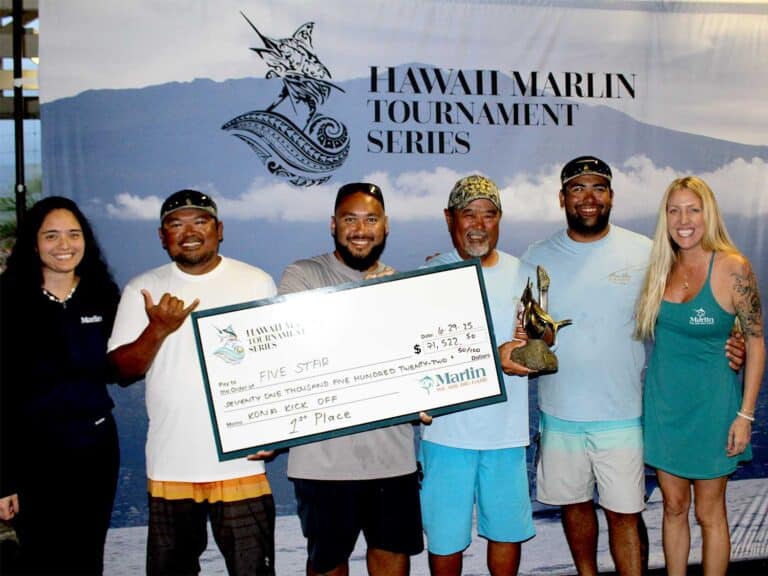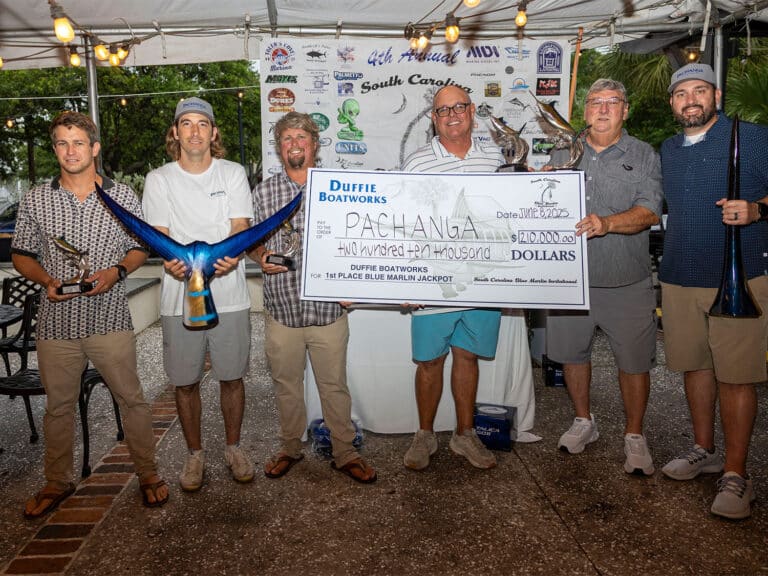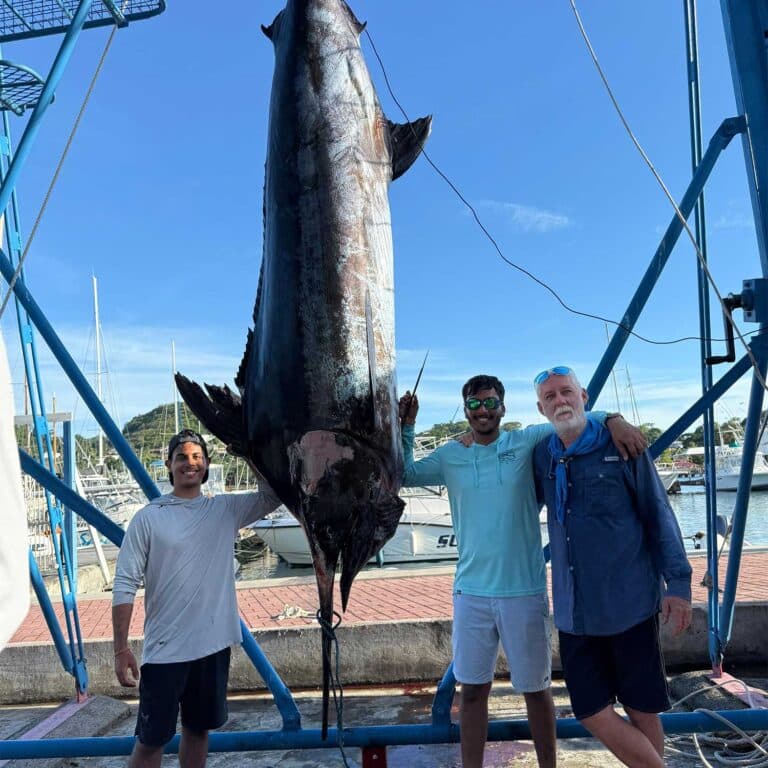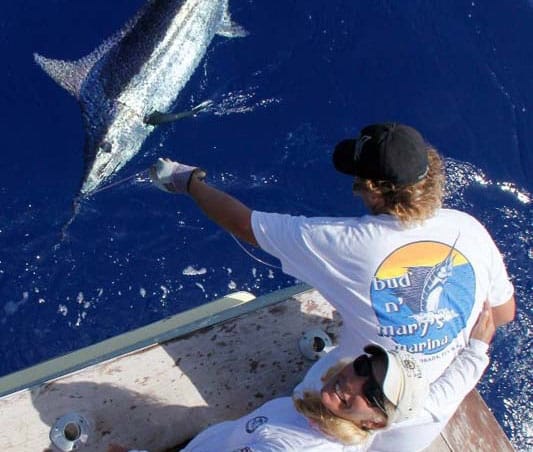
Nancy Bennett_Blue Marlin
Communication and teamwork between captain and crew are key ingredients of sport fishing, and must be done effectively, whether working together to get the teaser away from a hard-charging fish and onto the bait, or working together to get the fish on the leader and released quickly. However, communication and teamwork are often even more essential off the water, when the needs of the recreational fishing community are presented to decision-makers at the local, state, national, and international levels. Unfortunately, this aspect is often overlooked, not receiving the attention it deserves from those fishing on the water or within the industry.
One would think that communication between fisheries managers and the recreational community would not need to be facilitated, but if you look at the growing mistrust for the federal government over issues such as sea bass and red snapper, it’s no secret that the relationship has become strained. It’s hard to fault the recreational community for their feelings on these issues, with recent management decisions shortening or even closing fishing seasons altogether, pushing anglers to the point where they might as well pick up badminton because they can’t get out and fish. While that might be an extreme point of view, this is clearly an important time in fisheries management, and we must remember that progress can never be made if all we do is butt heads on issues. We might not agree on every action, but the recreational community must be proactive in finding solutions to these challenges, not just sit back and watch things happen.
Progress has been made over the years in gaining a voice for recreational fishing on both the national and international levels with hard work from fisheries conservation groups. Yet it seems that the National Marine Fisheries Service itself still struggles to have its finger on the pulse of recreational anglers, failing to understand the benefits generated from recreational angling or the necessary means to increase fishing opportunities (one of the most important drivers of the recreational community). However, before all hope is lost, it looks like steps are being taken in the right direction to fix the fundamental problem of recognizing the importance of recreational fishing in fisheries management.
One of the largest accomplishments so far took place in April at the National Saltwater Recreational Fishing Summit, where fisheries managers, council members, sport-fishing groups, and anglers sat down together and discussed issues challenging the future of saltwater recreational fishing in the United States. At the conclusion of the meeting, Eileen Sobeck, the newly appointed assistant administrator for NOAA fisheries, stated, “I commit that NOAA Fisheries will actively engage the recreational fishing community, and we will do our part to find cooperative solutions.” In doing so, she also committed NOAA to the creation of a new policy solely for recreational saltwater fishing in the United States. Specifically, the development of this policy is intended to provide a common platform for agency perspectives to help guide decision-making processes related to recreational fisheries. With the impending reauthorization of the Magnuson-Stevens Fisheries Conservation Act, the policy will become an important tool to better identify the needs and characteristics of recreational fishing in the United States, where many aspects, especially socio-economic benefits, have often been overlooked.
As part of the initial stages of development for the national policy, NOAA is seeking input over the next couple of months on issues important to anglers in the U.S., as well as feedback on what should be included within the policy. A series of town-hall meetings, as well as online seminars on the issues, will be hosted by NOAA, allowing captains, anglers, and members of the sport-fishing industry to be fully involved in the process as the groundwork for the policy is established. With saltwater recreational anglers chasing everything from spotted sea trout to blue marlin, it is extremely important that individuals play an active role in this process so all views are brought to the table. Given that this is the first opportunity for a policy completely dedicated to recreational fishing in the United States, it needs to be given the attention it deserves by constituents on all levels so it is done correctly the first time around.
In June, NOAA released the full schedule of town-hall meetings, as well as the framework for the areas that need to be addressed within the national recreational policy development process. One of the most important aspects of this policy is to clearly define recreational fishing in the United States. It is hard to believe a true definition does not currently exist, but defining it and deciding how to handle the different -sectors within it presents many challenges. What are the differences between private (not-for-hire) vessels, subsistence fishing (fishing to meet nutritional needs), and the for-hire sector? Are there any, or should they all fall under the umbrella of “-recreational fishing” as defined by NOAA?
Some argue the need for a separation between the private vessels and the for-hire sector because of the commercial nature of the latter operation. Additionally, many of these for-hire vessels fish under a commercial permit when not on a for-hire trip, which subsequently allows them to sell their catch. A separation of the currently encompassed recreational sector could open a whole new can of worms in itself, but it is an issue requiring involvement of both the private and for-hire sectors as the national policy is developed.
With several other important issues impacting the future of recreational policy within the framework to be discussed at the town-hall meetings, communication between all entities is paramount. An empty room during the town-hall meeting near you does not benefit anyone, and gives up an opportunity to be part of the solution. Russell Dunn, the NOAA national policy adviser for recreational fisheries, stated, “NOAA is committed to backing up words with actions,” and now we must do our part as well in order to find the solution.


